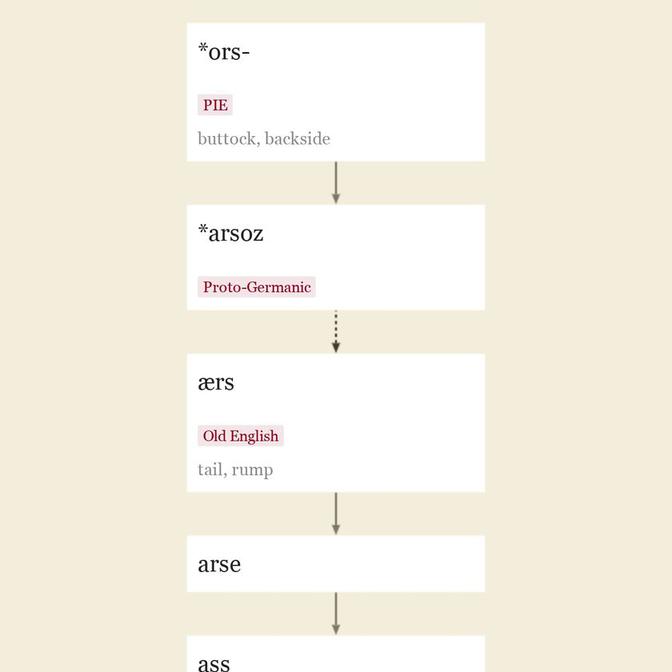candyass
also candy-ass, "
Entries linking to candyass
late 13c., "
The sense gradually broadened (especially in U.S.) to mean by late 19c. "

"
Indirect evidence of the change from arse to ass can be traced to 17c. By 1680s arse was being pronounced to rhyme with "
I must to the barber's, mounsieur; for me thinks I am marvellous hairy about the face; and I am such a tender ass, if my hair do but tickle me, I must scratch. [Bottom]
By 1785 polite speakers were avoiding ass in the "
The meaning "
He snoighed up his nose as if th' cheese stunk, eyed me wi an air o contempt fro my shoon to my yed, un deawn ogen fro my yed to my shoon ; un then pushin th' brade un cheese into my hont ogen, he says "Take your vile bread and cheese and stick it up your coat sleeve, and be demmed to you. Do you think I want your paltry grub?" Un then, turnin on his heel, he hurried into th' perk. ["Bobby Shuttle un His Woife Sayroh's Visit to Manchester," 1857]
updated on November 01, 2022